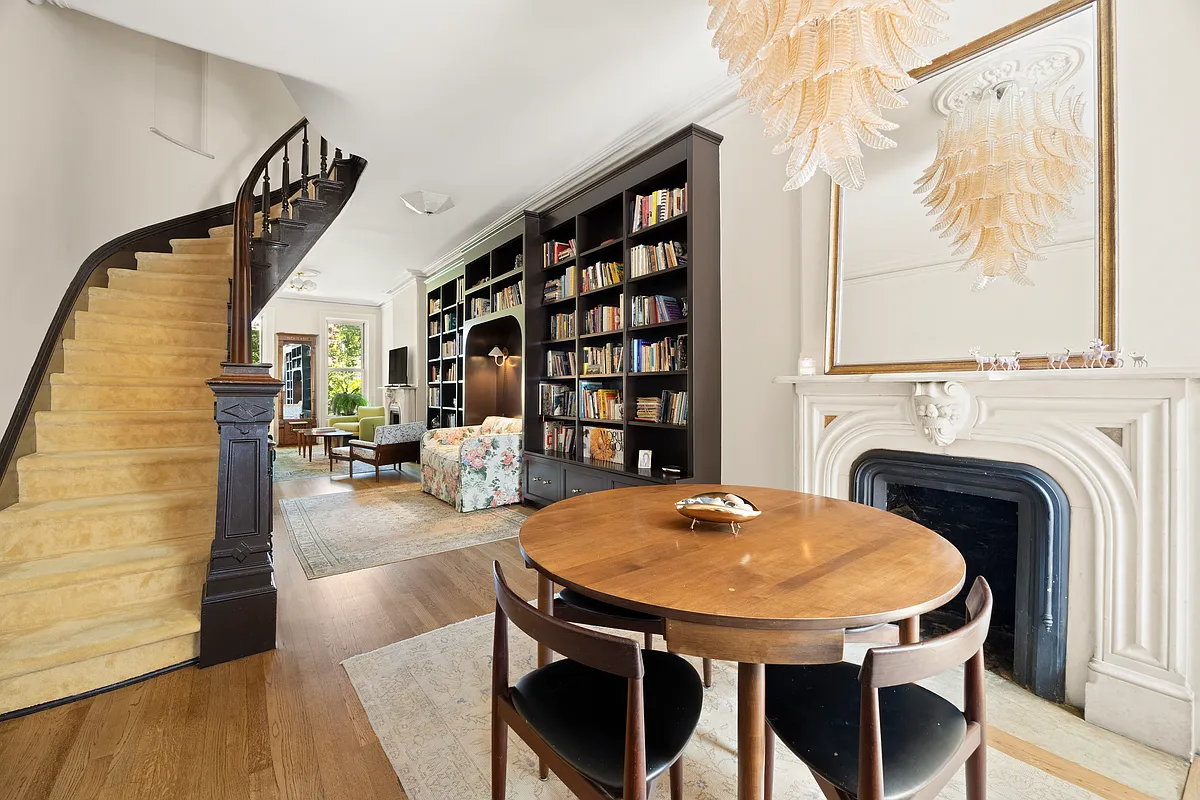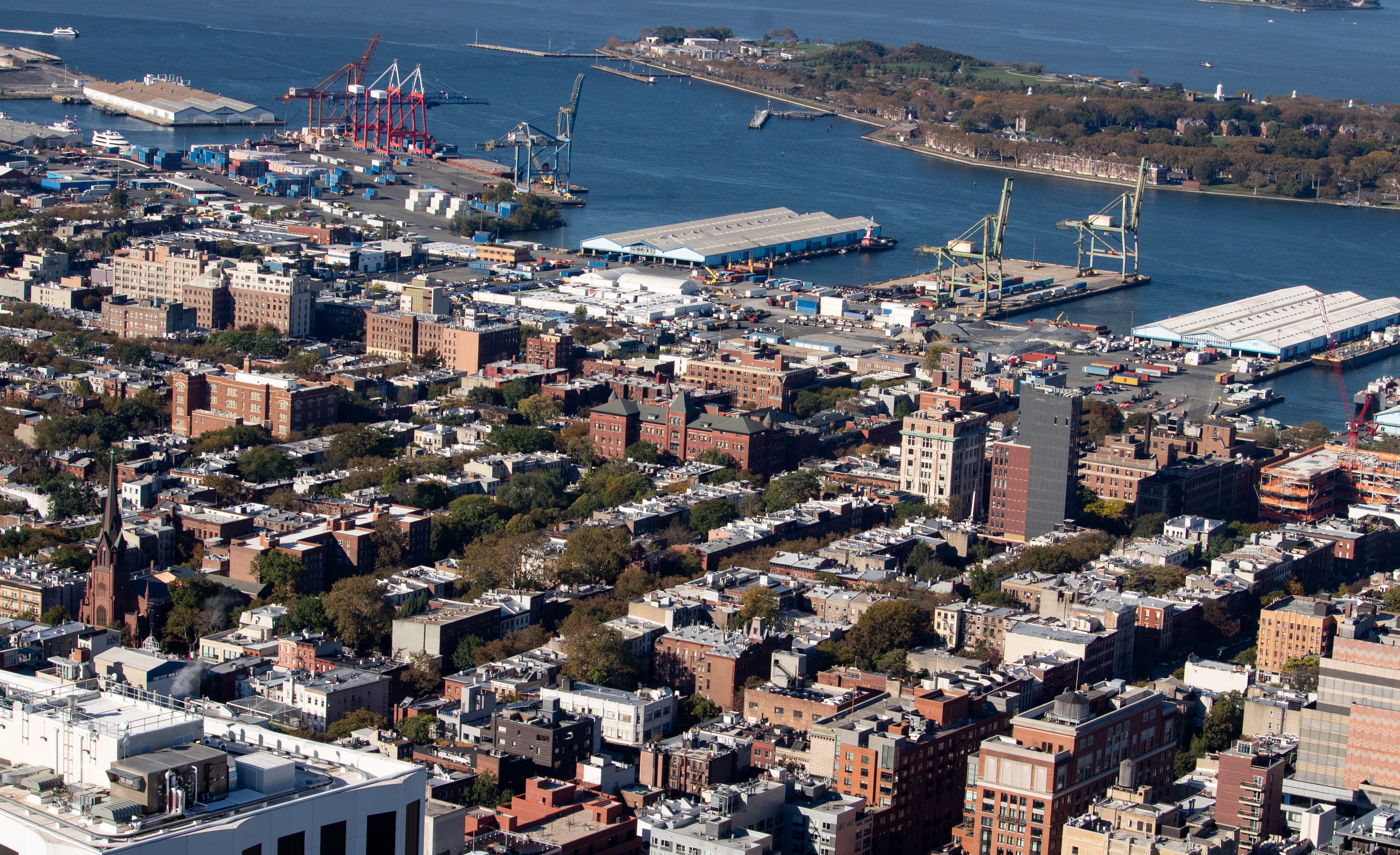As Black Homeownership Declines, Estate Planning Program Aims to Reverse Trend in Brooklyn
Center for NYC Neighborhoods is piloting an estate planning program as part of a parcel of initiatives to increase Black homeownership in the city.

Bed Stuy. Photo by Anna Bradley-Smith
Affordable homeownership nonprofit Center for NYC Neighborhoods is piloting an estate planning program as part of a parcel of initiatives intended to reverse declining Black homeownership rates across the city.
The Generation 2 Generation program, announced at the end of June, is one of five programs being rolled out by CNYCN following research done by the nonprofit showing a decline in Black homeownership rates citywide over the past 20 years.
In 2002, there were 209,524 Black homeowners citywide; by 2017, that number had declined to 181,695, according to the center. The causes of the decline include longtime owners selling to retire outside the area, foreclosure and fraud — both are especially rife in central Brooklyn — and rising Brooklyn home values that put homes out of reach of many.
The programs are together aimed at preserving and growing intergenerational wealth in Black households, and they include the estate planning program, a down payment assistance navigator, savings accelerator, pathways to tenant purchase program and homeowner landlord services.
The organization says it will work with local community partners to educate Black homeowners about the necessity of proactive estate planning, as well as expand the availability of free estate planning services. Already in Brooklyn, community organizations such as Brownstoners of Bedford-Stuyvesant, Bedford Stuyvesant Restoration Corporation, Bridge Street Development Corporation, Brooklyn Movement Center and Equality for Flatbush offer housing services as part of their work to keep Black and brown homeowners in Brooklyn neighborhoods. Estate planning is also a priority in the city’s Bedford-Stuyvesant Housing Plan.
The center, launched in 2008 by the city and private foundations to meet the challenge of the foreclosure crisis, also recently released figures on mortgage distress rates and found that in Brooklyn, 20 out of 37 ZIP codes have above-average rates of delinquent mortgages, with eight zip codes above 10 percent. The study found that areas with high mortgage distress were at the center of the 2008 foreclosure crisis and predatory lending or are in coastal or flood-prone areas (such as Canarsie and the Bergen Beach). Many are disproportionately affected by the annual tax lien sale.
Christie Peale, CEO and executive director of the CNYCN, said in a press release that the Generation 2 Generation program is the first of many efforts to protect intergenerational Black wealth, and it will provide a critical solution to address the growing racial wealth gap and decline of Black homeownership in New York City.
“For far too long, a legacy of racist housing practices has made it impossible for many Black families in the city to tap into the equity-building, cross-generational benefits of homeownership. Inheriting a home does not automatically lead to sustained homeownership — systems must be in place to protect it,” Peale said.
The pilot will include getting partners such as Department of Housing Preservation and Development to embed estate planning information in communications; creating workshops for estate planning in targeted areas citywide, particularly central Brooklyn and the north Bronx; working with community-based organizations to provide free instructional workshops on drafting wills and creating trusts and estates, as well as individualized legal consultations for low- and moderate-income households; and funding nonprofit partners that already provide estate planning.
Estate planning is designed to ensure equity is not lost or stolen when a home passes from one generation to another, individual families are able to build and retain wealth, and the racial wealth gap is reduced. In its research, the center found that due to the lack of affordable services and distrust of the legal system concerning the necessity of estate planning, many Black homeowners only encounter estate planning resources when they are in crisis or, in some cases, when it is already too late.
CNYCN’s program is funded through an investment by JP Morgan Chase, as part of CNYCN’s Black Homeownership Project (which includes research and programs funded by the JP Morgan Chase Foundation). The project stemmed from the center’s 2019 Equitable Homeownership Blueprint: A Blueprint For Thriving Neighborhoods — “a set of principles and proposals to expand healthy, sustainable and affordable homeownership to New York’s working families, to reverse decades of discrimination and exclusion against the city’s Black and brown communities, and to begin to narrow the racial homeownership and wealth gaps,” according to the center’s website.
Jeanique Druses, executive director of global philanthropy at JP Morgan Chase, said in the press release that by increasing awareness and connecting Black homeowners with resources like estate planning services, the city can begin to drive inclusive economic growth and preserve a key source of wealth in New York’s Black communities.
“A home is a crucial asset for any family to keep and pass down from one generation to the next as a source of wealth building and legacy creation and retention. However, Black homeowners face resounding challenges purchasing a home and retaining it in their family, often due to racist and predatory practices,” she said.
Through the research done as part of the Black Homeownership Project, CNYCN found in 2007 there were 1,742 originated loans for Black households in Brooklyn, but in 2019 there were just 881. (The data does not capture Black homebuyers who pay all cash.)
“Although there are currently more than 180,000 Black homeowner households in the city, these homeowners face greater challenges to remaining in their homes than white families: foreclosures were more prevalent in majority-Black neighborhoods, and brown and Black communities are more likely to be targeted for scams, burdened by tax liens, or have difficulty funding large repairs,” the project’s website explains.
Related Stories
- Settlement in Deed Theft Case Means Bed Stuy Family Can Stay in Their Home
- Gentrifying Crown Heights Is Losing Its Black Community
- Building Black Bed Stuy Crowdsources Community
Email tips@brownstoner.com with further comments, questions or tips. Follow Brownstoner on Twitter and Instagram, and like us on Facebook.





What's Your Take? Leave a Comment